Lynne Green was out in the field with her flock of sheep and working sheep dog Chief when I caught up with her for an interview. In true farmer fashion, she opened the conversation talking about the weather and how the grass was growing.
She grew up in Kentucky, the daughter of a gentleman farmer who raised cattle as a hobby and worked another job for income. “I learned early on that farming is something you do on the side because you can’t make money at it,” Lynne explained. “I think that is true more and more these days, that the small farmer is being pushed out from a business point of view. But if you are retired or have a second job, you can make it work.”
After attending college in Boston, Lynne married and lived with her husband Scott in Hong Kong for 10 years, where they had two children and worked in a Christian ministry. Coming back to the US was when Lynne’s farming adventure got started. “When we came to Seattle from Hong Kong, my husband said, ‘I’ll buy you a horse.’ I said, ‘You can’t afford the kind of horses I ride, but you can buy me a dog.’ So, he bought me a border collie. And the border collie led to sheep herding, and sheep herding led to sheep, and sheep led to a farm. And now I have horses too and turns out it would have been cheaper just to buy a horse,” she laughed.
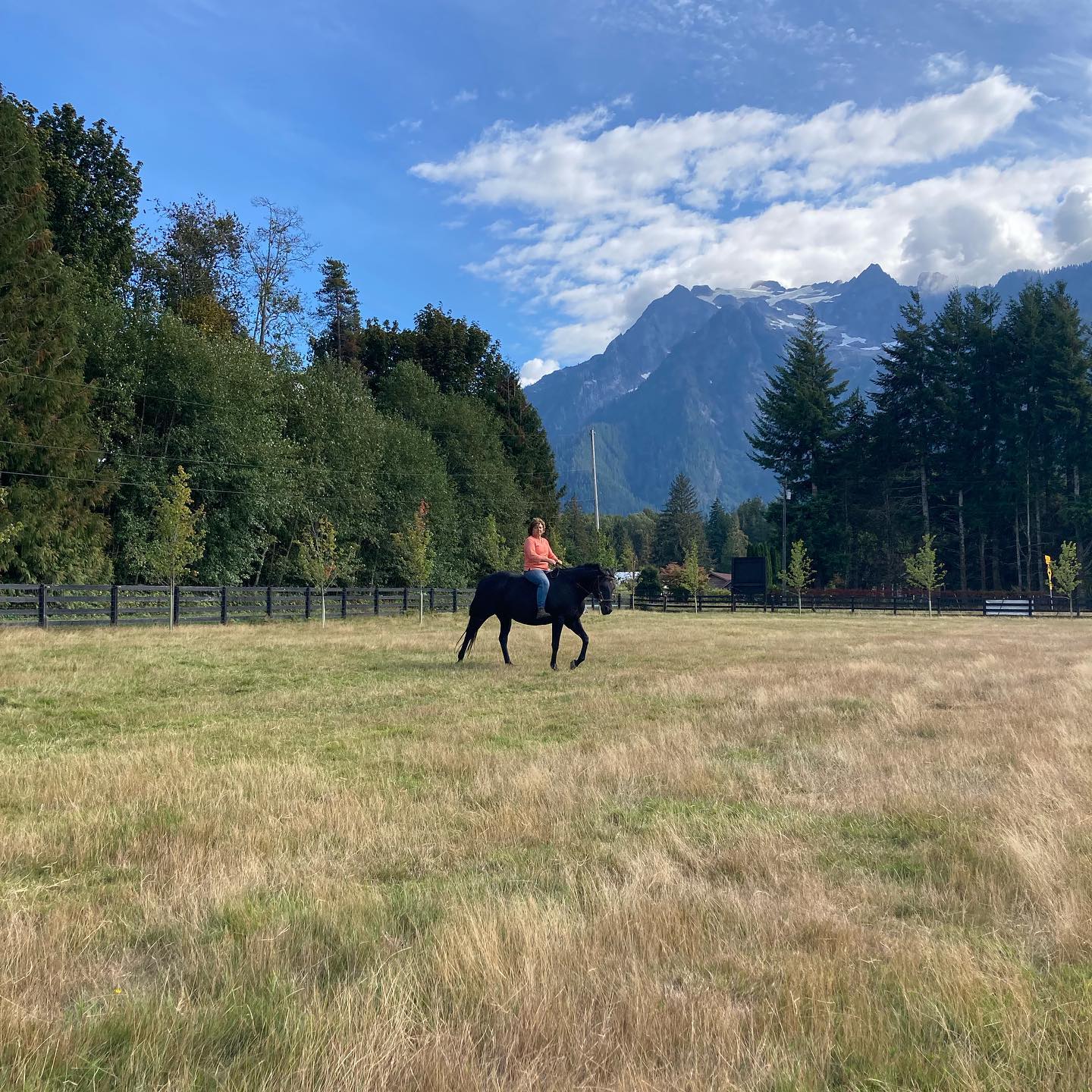
During her time in Seattle, she began sheep farming with a friend on a rental farm. The Green’s eventually they sold their house in Seattle and bought a 36-acre property in Arlington, Washington, planning to farm in the country during their retirement. Six months after they bought the farm, her husband was diagnosed with a terminal illness and passed away, leaving Lynne to live out the farm dream on her own.
The farm came with a barn and log house built by homesteaders who raised dairy cattle and grew hay in the early 1900’s, and the Green’s purchased the farm from the great-grandson of the original homesteader. The beautiful barn is so large that Lynne remodeled the loft into an apartment she rents as an Airbnb farm stay. She recently created a spacious conference room on the ground level which she is planning to rent for executive retreats in combination with equine and sheep assisted learning for companies to engage in team building exercises.
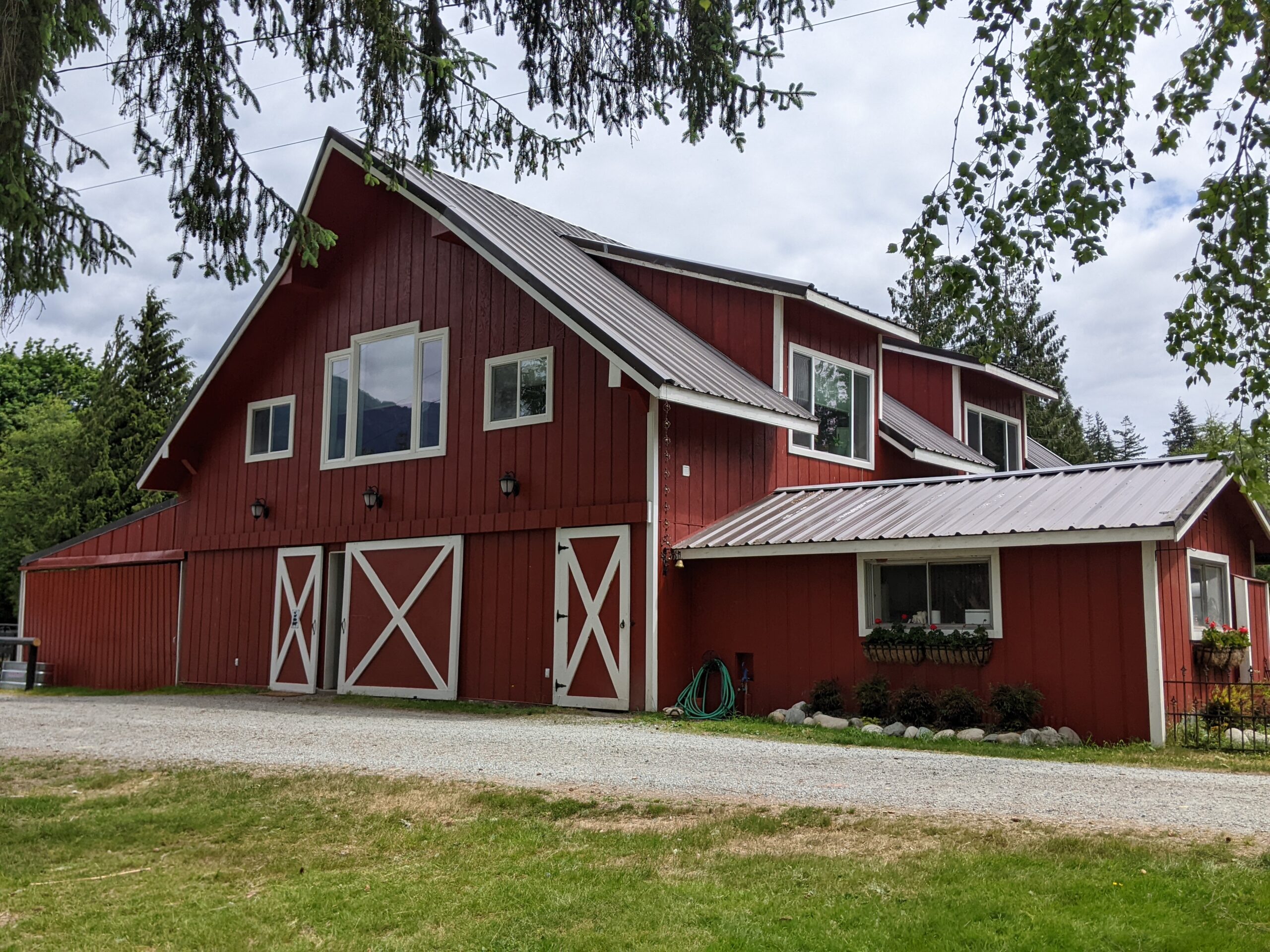
She now grazes her 84 ewes and their lambs on what used to be the hay field, which she keeps fresh with an occasional application of fertilizer and overseeding (adding seed without disturbing the soil). Using electric fencing to section the 20 acres of grass into 3 ½ acre parcels allows her to rotationally graze her flock.
Lynne has adopted the unique British three-tiered breeding system with her sheep. This stratified crossbreeding structure involves using Scottish Blackface ewes as the base of her flock and breeding them to a Border Leicester or Bluefaced Leicester ram, which produces crossbreeds known as mules. Breeding the ewe “Scotty mules” back to what is known as a terminal sire, which in Lynne’s case is part Texel and part Merino, produces high quality lambs for meat. “Scottish Blackface are to sheep what Angus are to cattle,” Lynne explained.
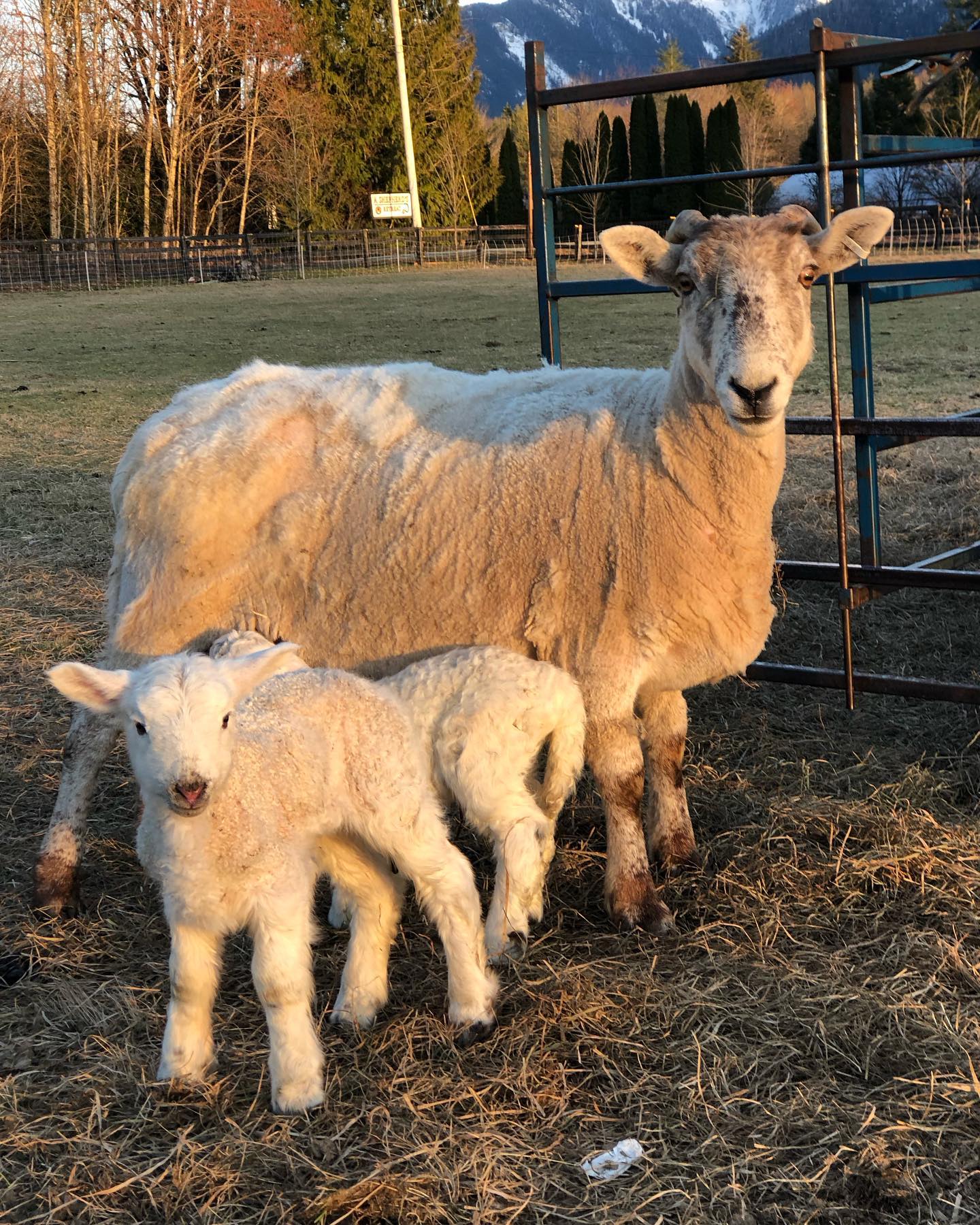
“Doing something with my wool is the last part of my farming plan that I really have to execute on,” said Lynne. Scottish Blackface wool is extremely tough and durable, and while it is used in Great Britian for fine carpets, it is not good for spinning and there is no market for it in the US. The mule and Border Leicester wool is very good spinning and felting wool. She plans to develop wool workshops so that people can learn how to work with their hands and is also looking into a new movement of using wool in gardening as mulch and compost. Wool pellets have been patented by Albert Wilde, owner of Wild Valley Farms, who is a 6th generation sheep rancher in Utah (you can read more about this fascinating gardening trend here). “But,” admitted Lynne, “it’s just a step too far for me. I realized I am a farmer and all of the side businesses I want to leave to someone else.”
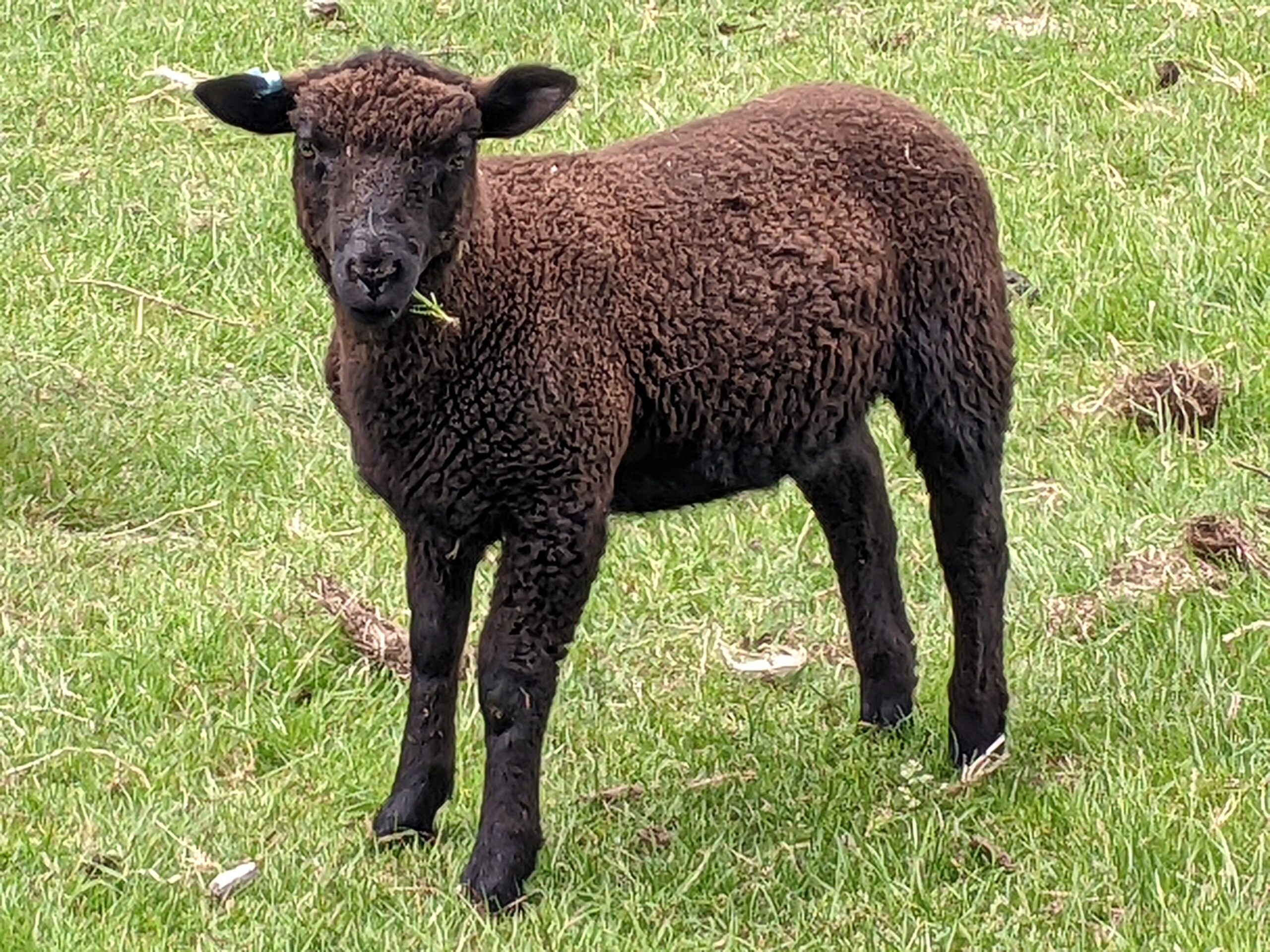
Lynne has loved working dogs since she was a kid on her father’s ranch, where he used border collies with his cattle. “It came quite naturally to me to want to work with the dogs. It’s an interesting working relationship because they’re not pets. They’re better than pets because they’re partners, and I couldn’t do the farm work without them.” She now has several border collies to herd the sheep as well as a few livestock guardian dogs that protect the sheep from coyotes and the local cougar.
Lynne’s passion for working dogs extends to hosting two large sheepdog trials every year. It is becoming increasingly difficult to find a farm large enough to host the trials, and one of the reasons Lynne raises as many lambs as she does each year is so that she can host trials for this sporting community.
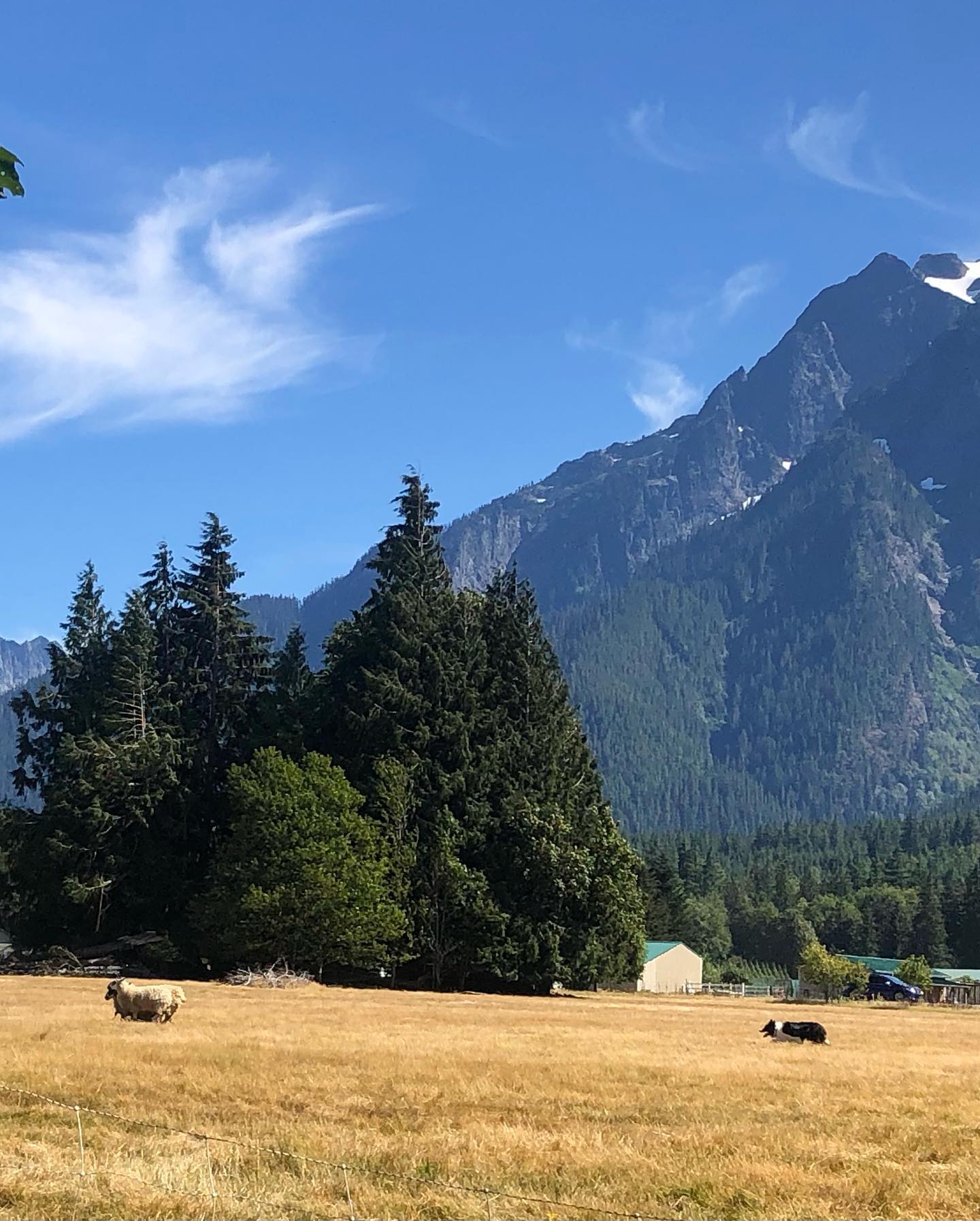
As if that’s not enough to keep her busy, Lynne also raises horses. She grew up doing three-day eventing, and now keeps horses to trail ride with friends. She currently has a couple of two-year-olds that are half thoroughbred and half warmblood which she will break and sell next year.
A Shepherd’s Retreat has two lodging options for farm stay guests: the loft in the barn and the remodeled farmhouse (Lynne lives in a tiny house up the road). The farm stay concept was encouraged by a friend of Lynne’s who had run several farm stay Airbnb’s in the UK, and it quickly became a way for the farm to pay for itself. Her proximity to the North Cascades National Park makes it a perfect jumping off point for about half of her guests. The other half are families from Seattle who need a larger house for a multi-generational family vacation and other city folk who just want to relax in the country.
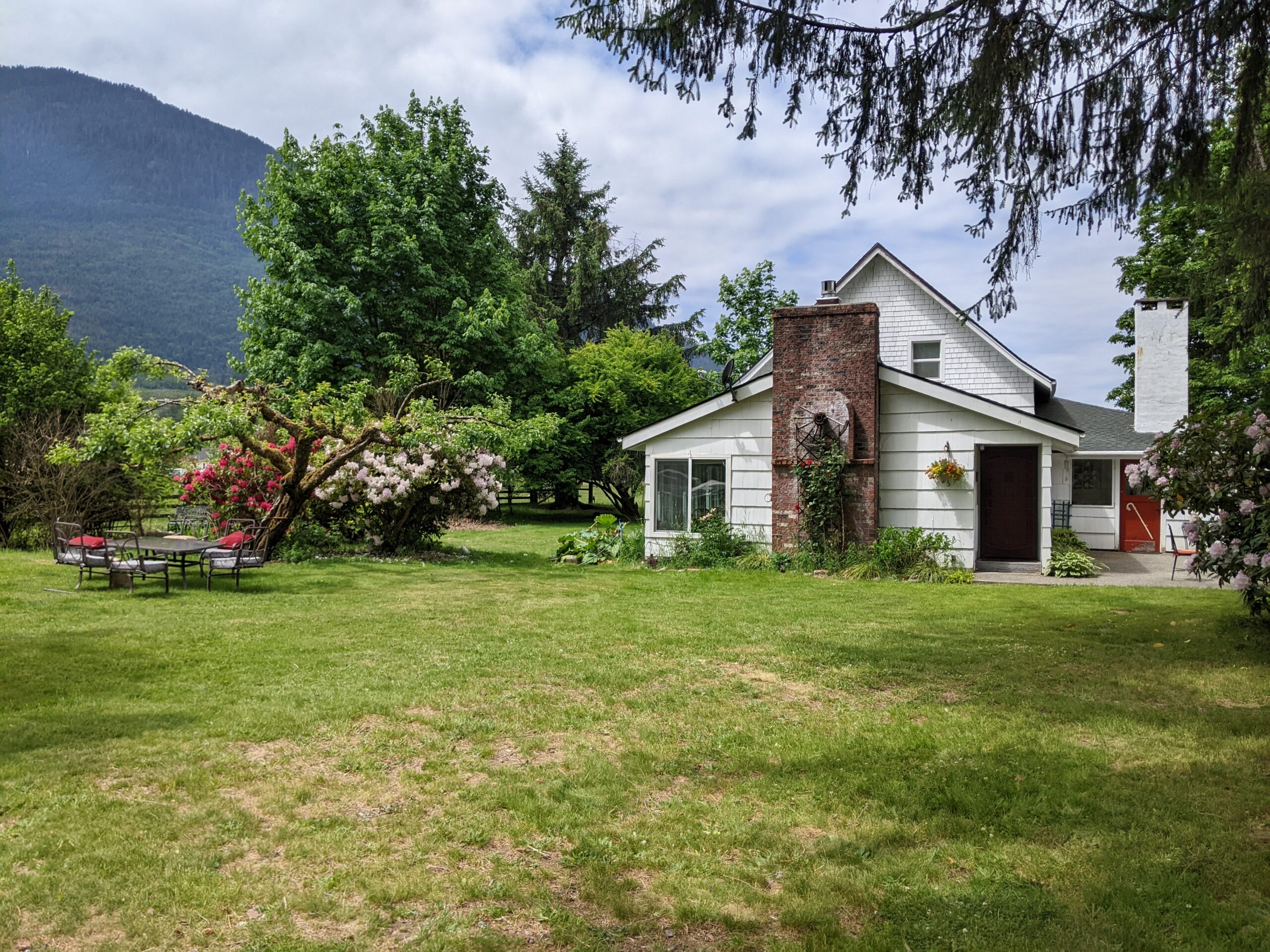
“The view is really amazing,” said Lynne. “I’m right at the foot of White Horse Mountain. It’s truly a restorative place. And that’s my goal is for people to come out here, to rest, to relax, to see nature, to be part of nature, to breathe deeply. I have an orchard that I’m hoping starts to produce more fruit, I want people to be able to walk out and pick apples and make an apple pie. I have a garden that’s going in, I want people to walk out and pick fresh vegetables seasonally and cook what they pick out of the garden.”

There is always more work to do on a farm, and Lynne is conscientious about giving herself breaks. Lambing season is the busiest time of year. “I enjoy ramping up for it and staying fully focused, and then I’m ready to be done. After lambing I always treat myself to a day at the spa and I have a dog trial that I go to back in Kentucky for 10 days. And I pay for a farm sitter, I just pay the money so that I get a full break. It’s tricky because without a spouse or a partner, a lot really does fall to me. I’ve had to decide that I just have to pay the money because there’s only so much one person can do. I like the farm work, but there are some things I don’t like doing. I don’t like fixing equipment; I hate fixing things and everything breaks on a farm. So I sort of have to figure out what I like doing and really do that and the things that I’m not good at I farm out, literally.”
She has learned the importance of setting good boundaries when it comes to 24/7 jobs like farming. Prioritizing is key: she asks herself, what are my must do things for today? She also has learned to give herself grace on hectic days. “There are times when I just go, you know what? I didn’t get everything done, but it’ll get done tomorrow or later in the week,” said Lynne.
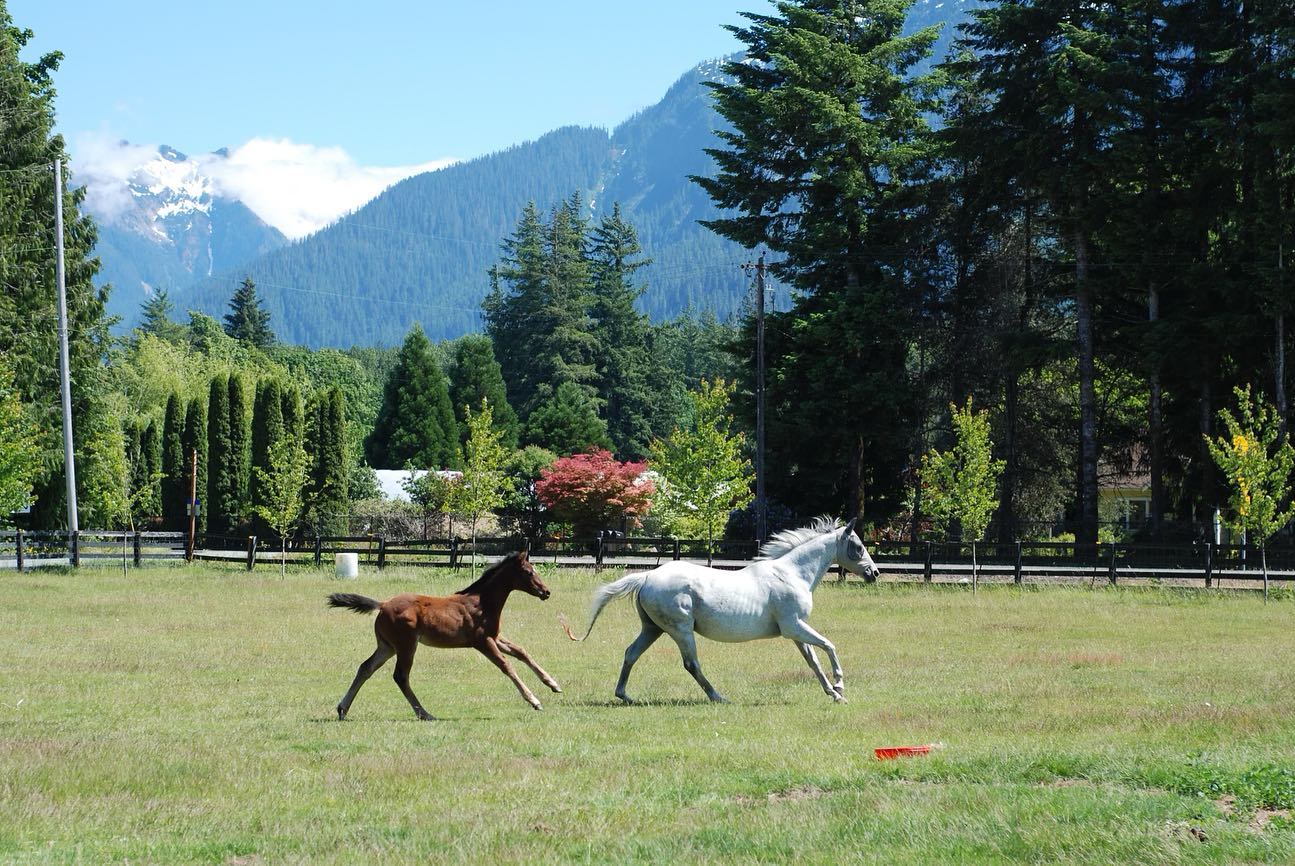
While Lynne maintains a strong social community through her church in Seattle, she also makes efforts to develop relationships in her local area. “I always talk to neighbors when they stop by, making it a priority to not be too busy to stop when neighbors stop with a question or have a need,” she said. “With the local community, I decided I would go to local people for any work I need done on the farm. And that’s really helped me get to know the community.”
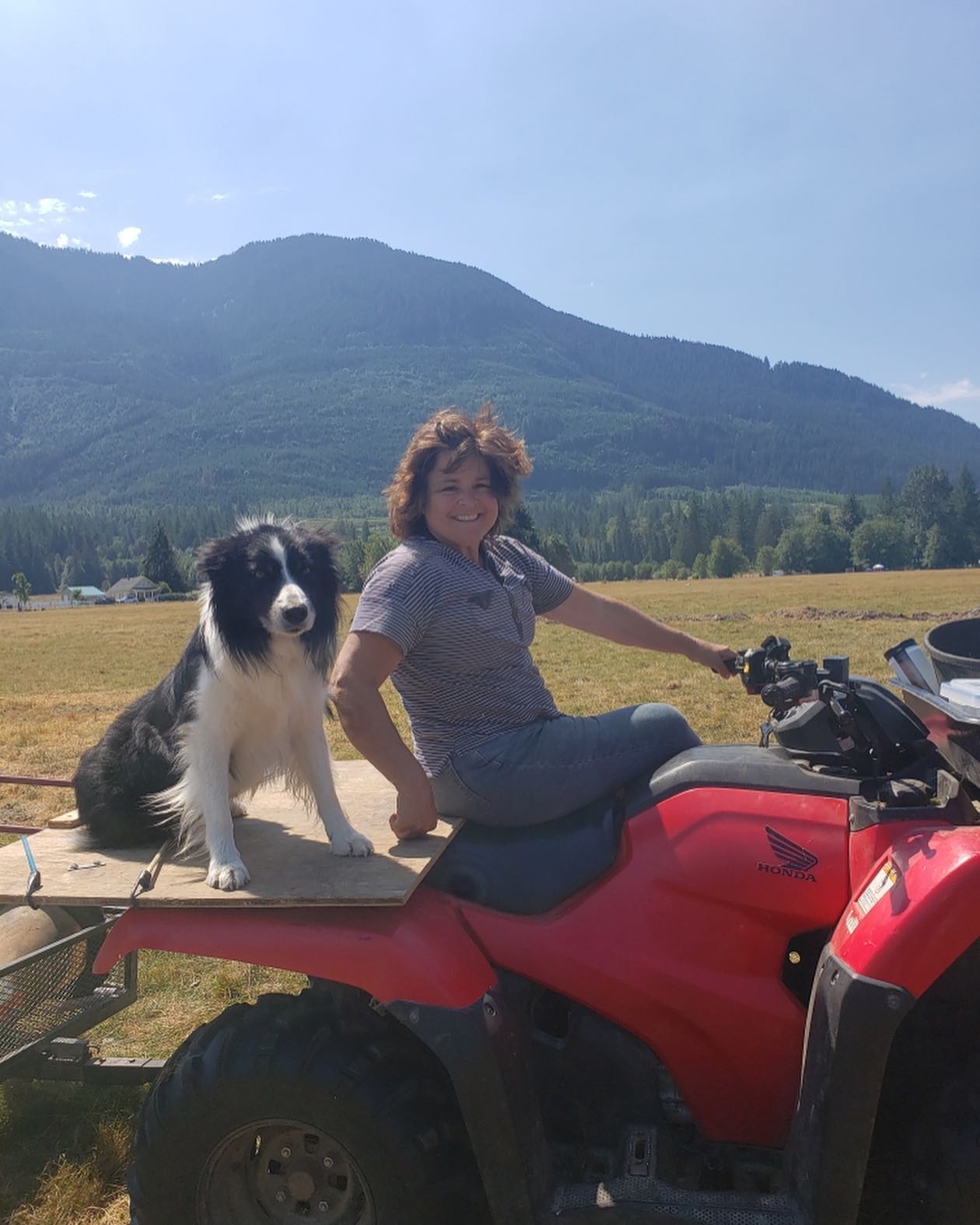
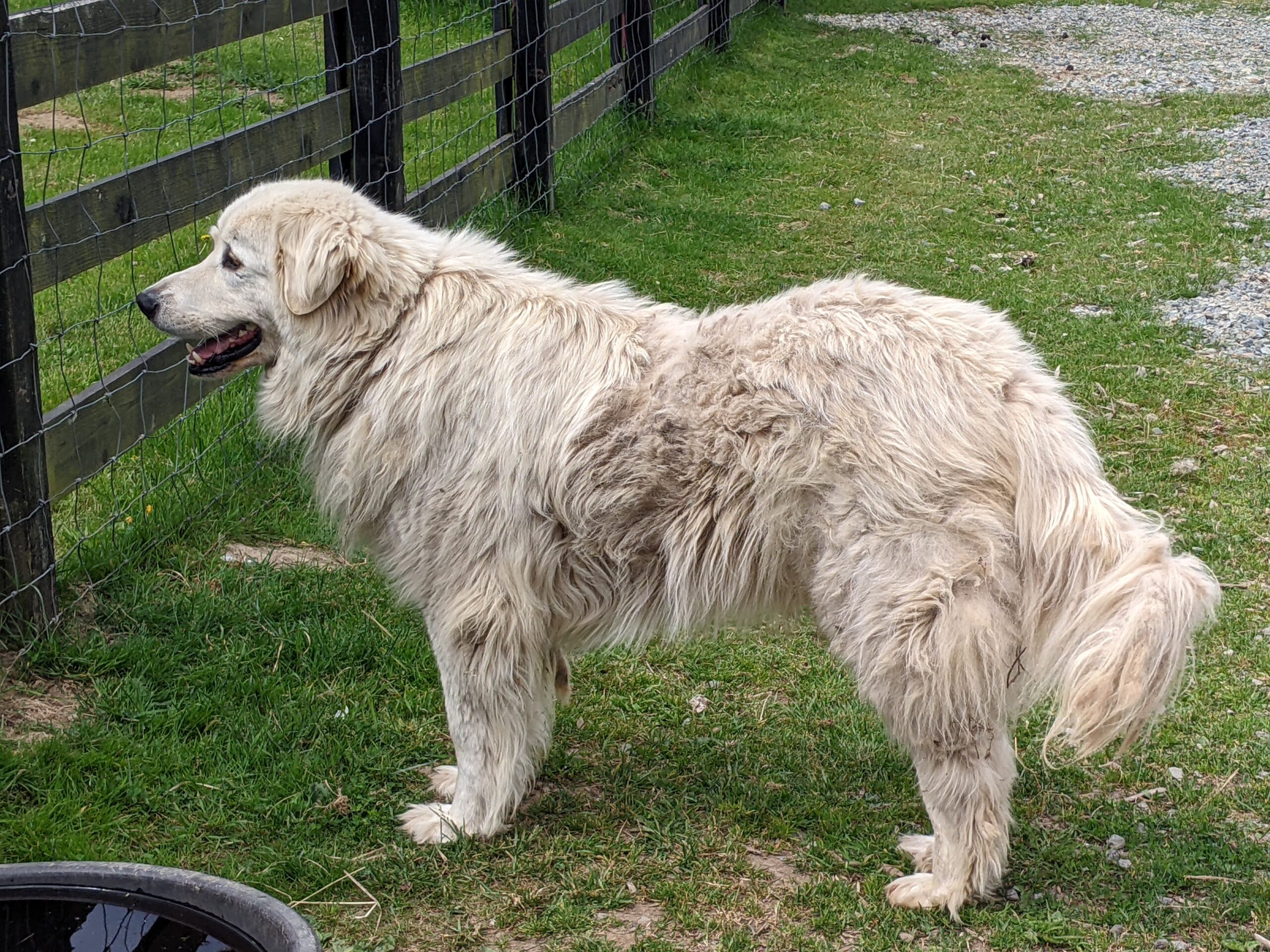
In addition to her community, Lynne’s animals have helped her get through the most difficult periods of her life. She shared that after her husband passed away, one of the things that got her out of bed every day was feeding the animals. “Because they have to be fed,” she said. “The animals needed me, and in fact, maybe I needed them more. And they like the routine, so every day, getting up at the same time, getting them fed, the horses all greet you when you walk into the barn.”
Through the trials of loss and the joy of nurturing life, Lynne has discovered the profound beauty in the rhythm of farm life, finding solace in the daily routines, the wagging tails of her dogs, and the sweet presence of her sheep. A Shepherd’s Retreat is more than just a farm; it’s a living embodiment of Lynne’s resilient spirit, creating a place where humans and animals can thrive together in a beautiful natural environment, reminding us all of the enduring power of nature.
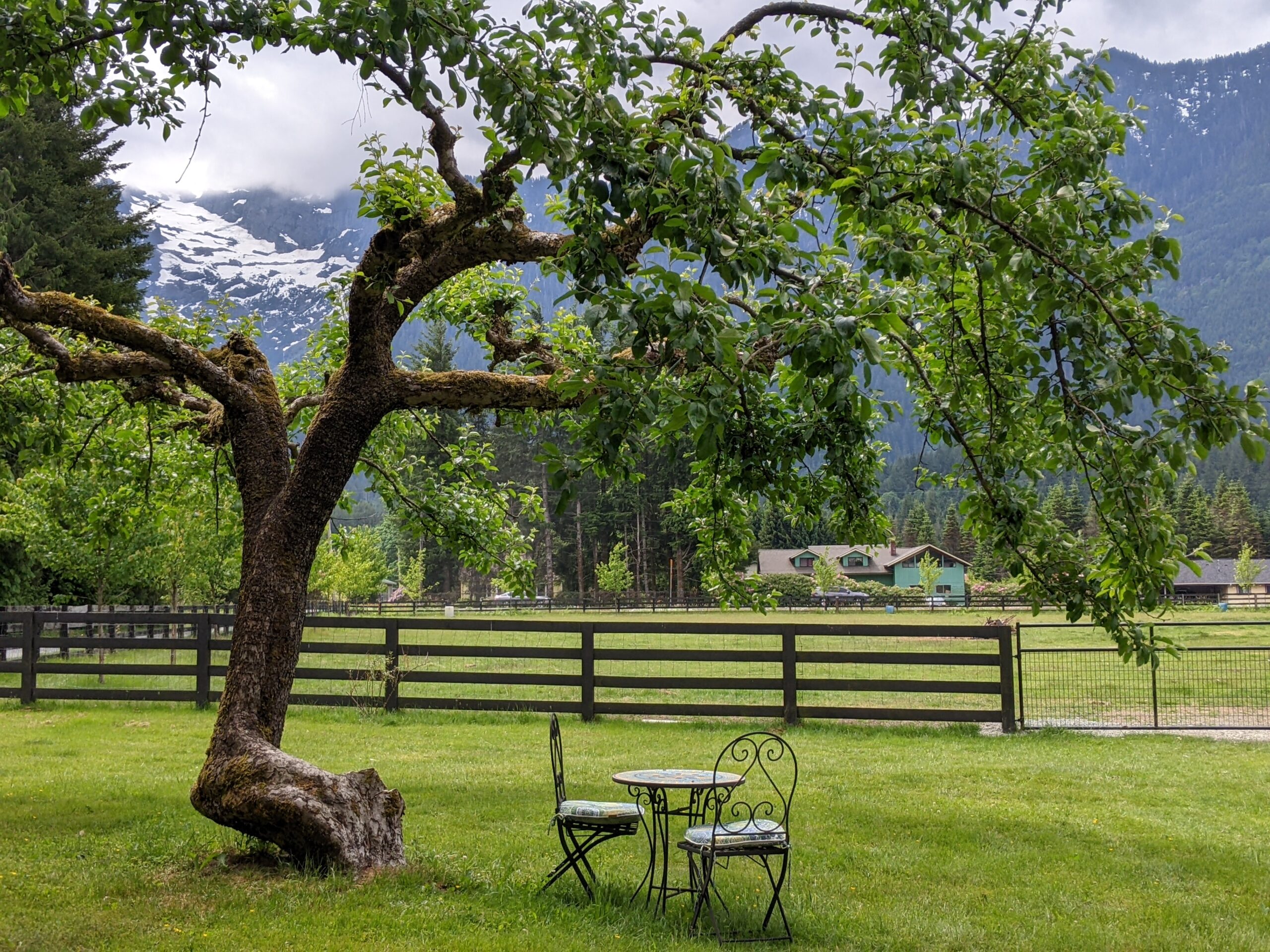
Lynne Green
“My vision for the farm is that it’s a place where people’s bodies can be rested, their souls restored, their bodies fed with natural food. I believe experiencing nature through your senses is just really restorative.”

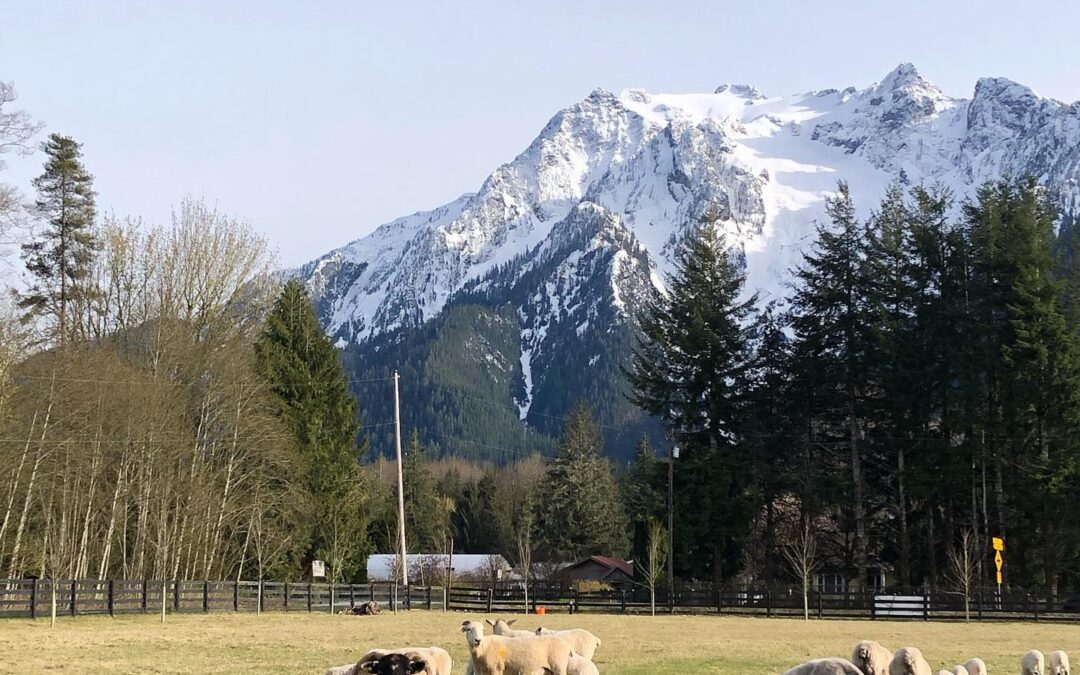
0 Comments